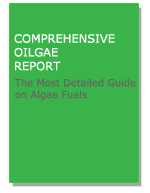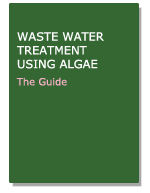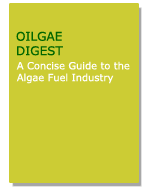Marine algae, or seaweeds, are the oldest members of the plant kingdom, extending back many hundreds of millions of years. They have little tissue differentiation, no true vascular tissue, no roots, stems, or leaves, and no flowers. Algae range in size from microscopic individual cells to huge plants more than 100 feet long. Though the flora is continuous along the coast, an abrupt change in overall species composition occurs at Point Conception, where nutrient-rich northern currents meet warmer southern ones.
Red Marine Algae's medicinal properties are thought to enhance the immune system's regulatory response, indicating that it is an immuno-modulatory/antiviral agent.
Red marine algae has been used by people as a food staple for thousands of years. In the Chinese Materica Medica, a volume dating back to 600 B.C., we find the following statement, "Some algae are a delicacy fit for the most honorable guest, even for the king himself." In China, Japan, and the Indo-Pacific region, several dozen species of Red Algae are used.
* It is a complete protein with all the essential amino acids-unlike most plant foods.
* It has a high carbohydrate content.
* It contains an extensive fatty acid profile, including Omega 3 and Omega 6.
* It has an abundance of vitamins, minerals and trace elements in a naturally-occurring synergistic design.
Web Resources
- Gigartina Red Marine Algae: Strains of Gigartina algae are the best source of supplemental sulfated polysaccharides known to Vibrant Health. Our "Gigartina" red marine algae has been developed in joint venture with SeaTech Bioproducts. It is the result of a rigorous search among red macro-algae for those with the most sulfated polysaccharides
- Marine Algae: Marine algae, or seaweeds, are the oldest members of the plant kingdom, extending back many hundreds of millions of years. They have little tissue differentiation, no true vascular tissue, no roots, stems, or leaves, and no flowers. Algae range in size from microscopic individual cells to huge plants more than 100 feet long. Though the flora is continuous along the coast, an abrupt change in overall species composition occurs at Point Conception, where nutrient-rich northern currents meet warmer southern ones
- Marine Plants and Fresh Water Algae to Enhance Health, Boost Immunity, Detoxify - Seaweeds are really not a weed but large marine algae that grow in the coastal
- Red Marine Algae - Information on Red Marine Algae: Red Marine Algae is more commonly known as marine seaweed. Seaweed has been utilized as a source of superfood for centuries. Seaweeds come in a variety of colors which gives rise to their variety of uses
- Introduction to the "Green Algae": The "green algae" is the most diverse group of algae, with more than 7000 species growing in a variety of habitats. The "green algae" is a paraphyletic group because it excludes the Plantae. Like the plants, the green algae contain two forms of chlorophyll, which they use to capture light energy to fuel the manufacture of sugars, but unlike plants they are primarily aquatic. Because they are aquatic and manufacture their own food, these organisms are called "algae," along with certain members of the Chromista the Rhodophyta, and photosynthetic bacteria, even though they do not share a close relationship with any of these groups
- Algae Control in the Marine Aquarium: Algae becomes a problem when it interferes with the aesthetic appeal of the tank, or when rampant growth threatens to smother delicate organisms such as sessile invertebrates. There is no simple solution to the problem of controlling excess algae growth, because a variety of factors are involved. Of primary importance in the closed system of a marine aquarium is the accumulation of excessive levels of nutrient ions in the tank. Nitrate, phosphate, carbon dioxide and dissolved organic matter are the primary nutrient ions. These substances are in relatively short supply in the natural environment of the coral reef. In the aquarium, however, they can rapidly accumulate, providing "fertilizer" for explosive growths of filamentous, encrusting, and free floating algae. While there is no single, simple technique for limiting algae growth, attention to several important factors can result in an aquarium relatively free of excess algae
- Algae and Their Control in Marine Systems: Talking about the algae with most aquarists reminds me of the sixties definition of "weeds", "Plants that we have yet to find a useful purpose for". Algae do have their place. They've been here for at least a billion years; and due to their ability to occupy almost all niches are going to be here way past our time
- Avoiding Algae Problems in Marine Systems: Everyone wants a beautiful, clean aquarium set-up, and almost everyone runs into algae problems… and hopefully solutions. Amongst all the types of queries we receive at WetWebMedia.com, this is the single largest category of folks looking for help
- Gold Algae Eater: The Gold Algae Eater is an ornate color variety of the familiar Chinese Algae Eater. This gorgeous golden yellow specimen adds a bright splash of color while providing the valuable service of cleaning your aquarium. Gold Algae Eaters are often kept in aquariums for the purpose of keeping algae under control, but this eye-catching fish performs double duty as a functional beauty
- What Is The Best Algae Eater?: That is a difficult question, and one which I cannot directly answer because most algae eaters have a type they are most fond of and many of these creatures may well ignore other types. What needs to be done is consider the algae that is causing a problem and hopefully choose a creature to eat it.
Other Related Sections
Blue
Green Algae, Red Algae,
Green
Algae, Marine
Algae, String
Algae, Pond
Algae, Pond
Algae Control, Algae Control;
Algae – World of
Algae
Energy
Portal – Discussed topics such as alternative & renewable energy,
peak oil, energy industry inventions & discoveries, and more.
Energy Sources - Main Sections






